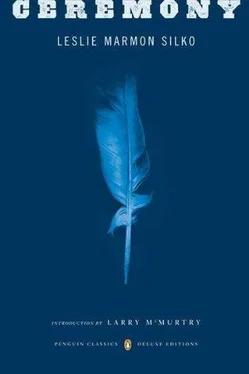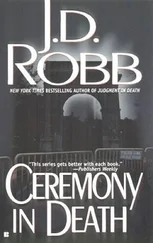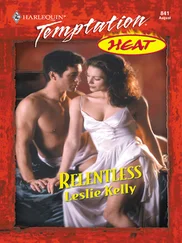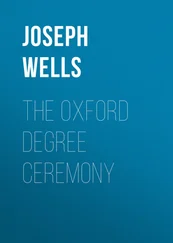Tayo did not look up. Maybe this time he really was crazy. Maybe the medicine man didn’t laugh all the time; maybe the dreams and the voices were taking over again.
“If you don’t trust me, you better get going before dark. You can’t be too careful these days,” Betonie said, gesturing toward the footlocker where he kept the hairs. “Anyway, I couldn’t help anyone who was afraid of me.” He started humming softly to himself, a song that Tayo could hear only faintly, but that reminded him of butterflies darting from flower to flower.
“They sent me to this place after the war. It was white. Everything in that place was white. Except for me. I was invisible. But I wasn’t afraid there. I didn’t feel things sneaking up behind me. I didn’t cry for Rocky or Josiah. There were no voices and no dreams. Maybe I belong back in that place.”
Betonie reached into his shirt pocket for the tobacco sack. He rolled a skinny little cigarette in a brown wheat paper and offered the sack to Tayo. He nodded slowly to indicate that he had been listening.
“That’s true,” the old man said, “you could go back to that white place.” He took a puff from the cigarette and stared down at the red sand floor. Then he looked up suddenly and his eyes were shining; he had a grin on his face. “But if you are going to do that, you might as well go down there, with the rest of them, sleeping in the mud, vomiting cheap wine, rolling over women. Die that way and get it over with.” He shook his head and laughed. “In that hospital they don’t bury the dead, they keep them in rooms and talk to them.”
“There are stories about me,” Betonie began in a quiet round voice. “Maybe you have heard some of them. They say I’m crazy. Sometimes they say worse things. But whatever they say, they don’t forget me, even when I’m not here.” Tayo was wary of his eyes. “That’s right,” Betonie said, “when I am gone off on the train, a hundred miles from here, those Navajos won’t come near this hogan.” He smoked for a while and stared at the circle of sunlight on the floor between them. What Tayo could feel was powerful, but there was no way to be sure what it was.
“My uncle Josiah was there that day. Yet I know he couldn’t have been there. He was thousands of miles away, at home in Laguna. We were in the Philippine jungles. I understand that. I know he couldn’t have been there. But I’ve got this feeling and it won’t go away even though I know he wasn’t there. I feel like he was there. I feel like he was there with those Japanese soldiers who died.” Tayo’s voice was shaking; he could feel the tears pushing into his eyes. Suddenly the feeling was there, as strong as it had been that day in the jungle. “He loved me. He loved me, and I didn’t do anything to save him.”
“When did he die?”
“While we were gone. He died because there was no one to help him search for the cattle after they were stolen.”
“Rocky,” Betonie said softly, “tell me about Rocky.”
The tears ran along the sides of Tayo’s nose and off his chin; as they fell, the hollow inside his chest folded into the black hole, and he waited for the collapse into himself.
“It was the one thing I could have done. For all of them, for all those years they kept me. . for everything that had happened because of me. .”
“You’ve been doing something all along. All this time, and now you are at an important place in this story.” He paused. “The Japanese,” the medicine man went on, as though he were trying to remember something. “It isn’t surprising you saw him with them. You saw who they were. Thirty thousand years ago they were not strangers. You saw what the evil had done: you saw the witchery ranging as wide as this world.”
“And these cattle. .
“The people in Cubero called her the Night Swan. She told him about the cattle. She encouraged him to buy them. Auntie said that—”
The old man waved his arms at Tayo. “Don’t tell me about your aunt. I want to know about those cattle and that woman.”
“She said something to me once. About our eyes. Hazel-green eyes. I never understood. Was she bad, like Auntie kept saying? Did the cattle kill him — did I let the cattle kill him?”
The old man had jumped up. He was walking around the fire pit, moving behind Tayo as he went around. He was excited, and from time to time he would say something to himself in Navajo.
Betonie dug down into the cardboard boxes until dust flew up around his face. Finally he pulled out a brown spiral notebook with a torn cover; he thumbed through the pages slowly, moving his lips slightly. He sat down again, across from Tayo, with the notebook in his lap.
“I’m beginning to see something,” he said with his eyes closed, “yes. Something very important.”
The room was cooler than before. The light from the opening in the roof was becoming diffuse and gray. It was sundown. Betonie pointed a finger at him.
“This has been going on for a long long time. They will try to stop you from completing the ceremony.”
The hollow inside him was suddenly too small for the anger. “Look,” Tayo said through clenched teeth, “I’ve been sick, and half the time I don’t know if I’m still crazy or not. I don’t know anything about ceremonies or these things you talk about. I don’t know how long anything has been going on. I just need help.” The words made his body shake as if they had an intensity of their own which was released as he spoke.
“We all have been waiting for help a long time. But it never has been easy. The people must do it. You must do it.” Betonie sounded as if he were explaining something simple but important to a small child. But Tayo’s stomach clenched around the words like knives stuck into his guts. There was something large and terrifying in the old man’s words. He wanted to yell at the medicine man, to yell the things the white doctors had yelled at him — that he had to think only of himself, and not about the others, that he would never get well as long as he used words like “we” and “us.” But he had known the answer all along, even while the white doctors were telling him he could get well and he was trying to believe them: medicine didn’t work that way, because the world didn’t work that way. His sickness was only part of something larger, and his cure would be found only in something great and inclusive of everything.
“There are some things I have to tell you,” Betonie began softly. “The people nowadays have an idea about the ceremonies. They think the ceremonies must be performed exactly as they have always been done, maybe because one slip-up or mistake and the whole ceremony must be stopped and the sand painting destroyed. That much is true. They think that if a singer tampers with any part of the ritual, great harm can be done, great power unleashed.” He was quiet for a while, looking up at the sky through the smoke hole. “That much can be true also. But long ago when the people were given these ceremonies, the changing began, if only in the aging of the yellow gourd rattle or the shrinking of the skin around the eagle’s claw, if only in the different voices from generation to generation, singing the chants. You see, in many ways, the ceremonies have always been changing.”
Tayo nodded; he looked at the medicine pouches hanging from the ceiling and tried to imagine the objects they contained.
“At one time, the ceremonies as they had been performed were enough for the way the world was then. But after the white people came, elements in this world began to shift; and it became necessary to create new ceremonies. I have made changes in the rituals. The people mistrust this greatly, but only this growth keeps the ceremonies strong.
“She taught me this above all else: things which don’t shift and grow are dead things. They are things the witchery people want. Witchery works to scare people, to make them fear growth. But it has always been necessary, and more than ever now, it is. Otherwise we won’t make it. We won’t survive. That’s what the witchery is counting on: that we will cling to the ceremonies the way they were, and then their power will triumph, and the people will be no more.”
Читать дальше












